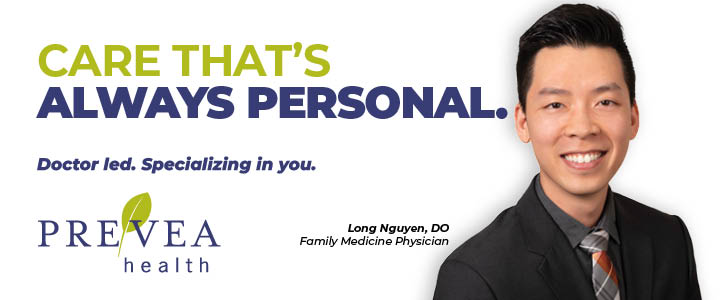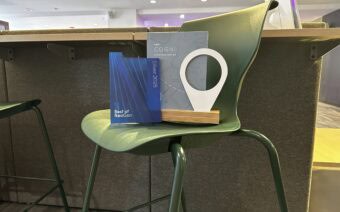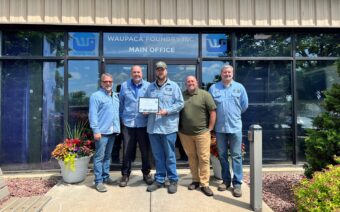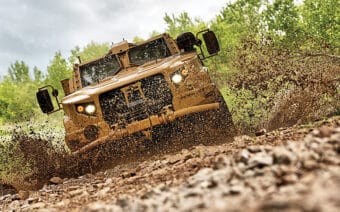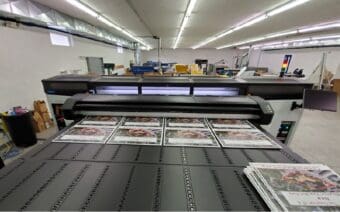
November 4, 2024
APPLETON – With Northeast Wisconsin being a Midwest leader in the manufacturing industry, it makes sense that Air Quality Engineers (AQE), a California-based industrial air quality solution design and supply company, has moved into the Wisconsin market.
With new offices in Appleton and Milwaukee, AQE CEO/Founder Mike Freeman said the locations will serve a valuable role.
“The offices will be central hubs for AQE’s operations in the Midwest, as well as housing sales and customer support teams dedicated to providing tailored air quality solutions and exceptional service to industrial clients throughout the region,” he said.
Though he only launched AQE in 2021, Freeman said he has 30 years of experience working in air quality – “capturing and filtering air contaminants to protect people and improve processes.”
He said the expansion into Wisconsin signifies a strategic effort to leverage AQE’s knowledge to help manufacturers in the region meet Occupational Safety and Health Administration (OSHA), Environmental Protection Agency (EPA), National Fire Protection Association (NFPA) and other demands for high-quality clean air solutions.
Though the company is only now officially launching in Wisconsin, Freeman said the Badger State market is not new to him.

“I started working with Wisconsin businesses in 1996, so it’s not by accident that this happened,” he said. “My mom is from the Upper Peninsula of Michigan, so I’ve traveled through Wisconsin since I was a kid. I’m from Ohio, but Illinois and Wisconsin have been a big part of my life, even though I’ve been in California for 12 years now.”
Freeman said it’s exciting to be a part of an area in the U.S. that has a large manufacturing presence – “perfect for Air Quality Engineers.”
“It’s a great collaboration with what we’re putting together because we know the needs are there,” he said. “People take for granted clean water and air, but in so many manufacturing environments, a lot of times, it’s just not there.”
Depending on the industry, Rolando Sanchez, president/CFO/COO of AQE, said Northeast Wisconsin ranks anywhere from first to third in the Midwest – “so again, it makes sense for us to be here.”
“With the concentration of paper/pulp and the fact there are a lot of foundries in the area, those entities want to be protected and want to go home safe at night,” he said. “We want to make sure their employees are safe and have a good working environment (with clean, quality air).”
Though quality air obviously has positive health benefits, Freeman said it spills into other areas as well.
“If you solve the (air quality problem) correctly, your workers are happier,” he said. “Your productivity is better. Your quality is better, and you get less dirt on your finished product. Your building stays cleaner longer, so customers with good air quality in a manufacturing environment not only protect the workers and the environment, but it protects their bottom line.”
Freeman said as a youngster, even though he really didn’t fully understand what an environmental engineer was, he saw himself working in the field someday.
“Many environmental engineers are simply cleaning up problems after they happen,” he said. “That doesn’t sit well with me. Why does the problem need to happen in the first place? If we can work with the industry in the right way, we can solve the problem before it becomes a problem.”
How it works
Freeman said AQE aims to capture airborne contaminants as close to the source as possible.
“The contaminants are then transported through ducting systems at the appropriate velocity and cleaning and capturing the contaminants before exhausting or returning the air into the building,” he said.

Freeman said AQE doesn’t actually install the systems it designs/creates but works with trusted partners that take care of the installation.
“AQE also performs comprehensive site audits on existing systems and routine maintenance services to maximize system performance at the lowest possible operating costs and regulatory compliance,” he said. “We assess their needs and design the full system from the point of source contamination. Then we design the duct work and partner with Wisconsin manufacturers, one being AirPro (Fan and Blower Company) in Rhinelander. We work with a lot of different installers.”
Freeman said on a simpler scale, he compares the process to the heating/cooling system in a home.
“You’ve got registers that supply the air to a room, and there is some ductwork beyond that that goes through different parts of the house,” he said. “Then that goes to the unit that has the fan, the heater and the air conditioner. Think of the manufacturers that are involved in all those different things. Ours just deals with pulling up dirty air instead. We’ve got different groups who specialize in their area of work.”
Freeman said oftentimes, manufacturing/industrial facilities are given a bad rap with air quality or cleanliness issues – “many times, unjustifiably so.”
“Of course, like in any industry, some (manufacturing/industrial companies) have air quality or cleanliness issues, but as a whole, it’s not anywhere like it used to be,” he said. “We’ve got air filtration systems where we can recirculate clean air back into the facility. We’ve got hospital-grade air coming off of a very industrial, dirty process that gets that dirty air out of the breathing zone.”
Examples of use
Freeman said his first experience in the air quality sector was when he worked as a chemical engineer for a pharmaceutical company.
“My first side of it was having somebody do dust collection and air quality issues for me, and then somehow, I decided to jump into that myself,” he said. “Eventually, due to some challenges and changes in my work life, I decided to create a new company.”

Freeman said there are a lot of people who try to sell clean air, but many don’t do the greatest job at doing so.
“They don’t engineer a system based on the needs of what the process with the manufacturing operations requires,” he said.
Freeman said examples of where AQE might be utilized include welding, grinding up trees to make paper, pharmaceuticals, concrete, etc.
“You think about all these different things, and when that takes place at the level of the operator – or the machine – or the machine might be grinding something, crushing something or you’re mixing,” he said.
Freeman said AQE also does a lot of work with food companies.
“Think about doing that in your kitchen on a small scale, and you get dust and stuff in your face and you’re sneezing,” he said. “We’ll do that on the level where you’re producing it for a large distribution of a national food company and their spice mixes or blends, and you have huge amounts of dust that can go in the air.”
Freeman said his brother was a welder and dealt with bad air quality.
“It’s something I’m passionate about,” he said. “I like to understand the operation, and then from there, find the solution.”
For more on AQE, visit airqualityengineers.com.
 New North Summit showcases ‘the power of collaboration’
New North Summit showcases ‘the power of collaboration’ ‘It’s about being a champion, a convener and a catalyst’
‘It’s about being a champion, a convener and a catalyst’

